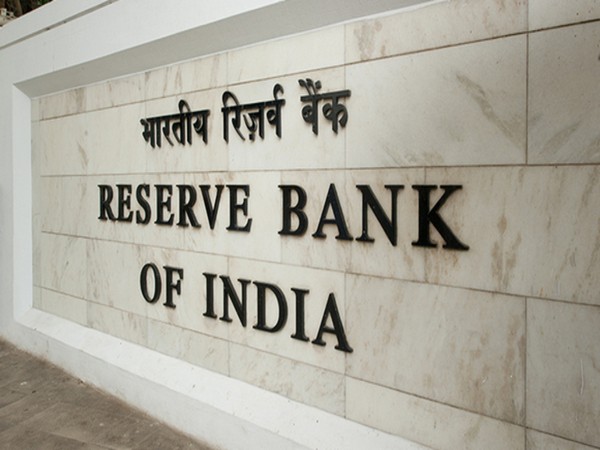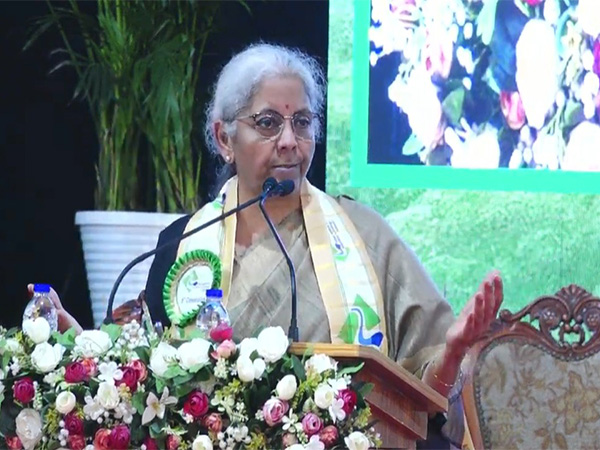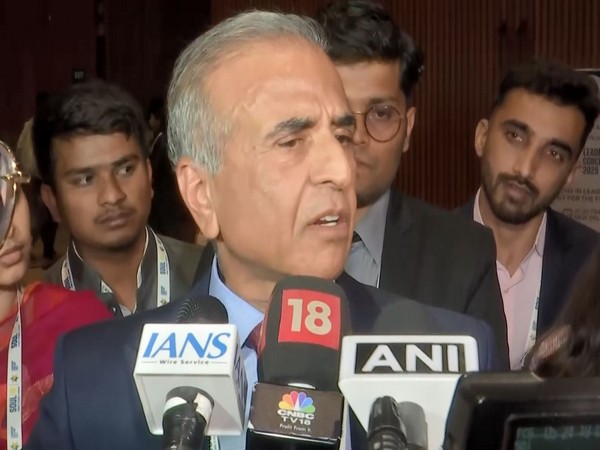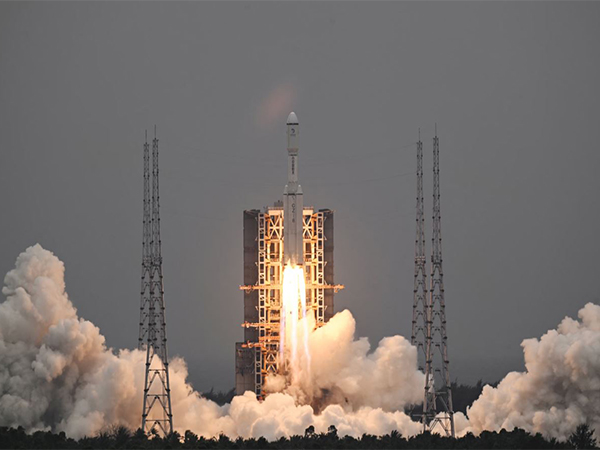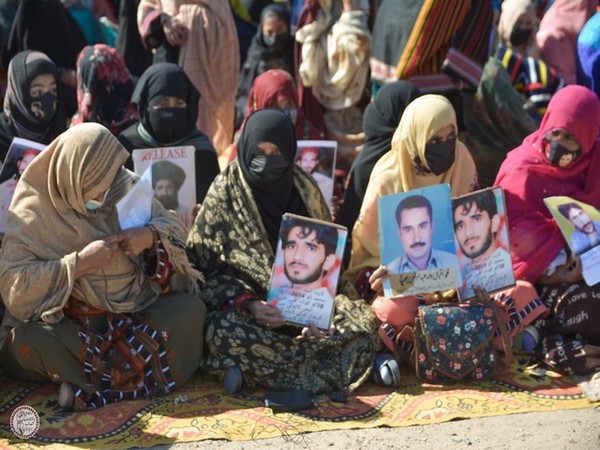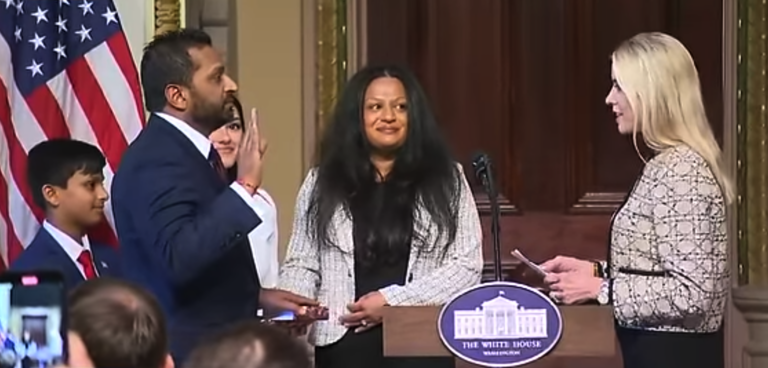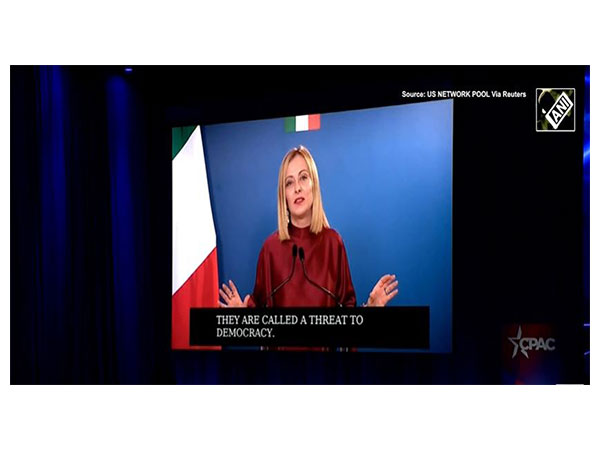
New Delhi [India], June 10 (ANI): Indian stock indices continued their uptrend from the past week and opened at fresh record highs at the opening bell on Monday, a day after Prime Minister Narendra Modi and his Union Council of Ministers took oath to office. A smooth transition in the government formation seemed to have boosted market sentiments.
At the time of filing this report, Sensex was at 76,890.34, up 0.3 per cent, and Nifty at 23,372 points, up 0.4 per cent. They hit their record highs at 76,960.96 points and 23,411.90 points, respectively, at opening today. Most of the sectoral indices were in the green.
As the week progresses, analysts believe that investors will keep an eye on the upcoming US Fed interest rate decision, India’s inflation data (both retail and wholesale), and decisions of the new government. Allocation of ministry portfolios to the newly sworn in ministers would also be keenly tracked by markets.
India’s retail inflation eased to 4.83 per cent in April, down from 4.85 per cent in March. However, consumer food price inflation surged to 8.70 per cent from 8.52 per cent last month. The retail inflation in India though is in RBI’s 2-6 per cent comfort level but is above the ideal 4 per cent scenario.
“…global cues, particularly the upcoming US Fed meeting, will be closely watched by participants. The recovery following the post-election decline suggests resilience among participants, and we expect the prevailing tone to continue,” said Ajit Mishra, SVP, Research, Religare Broking Ltd.
“The renewed participation of sectors like IT and FMCG, which were previously on the sidelines, supports our confidence. However, traders should remain cautious and focus on stocks that are moving in line with the benchmark,” Mishra added.
“Next week’s focus will be on the allocation of key cabinet portfolios such as Finance, Defense, Roads, Energy, Commerce, and Railways. The market will continue to be volatile with upward biasedness,” Siddhartha Khemka, Head – of Retail Research, at Motilal Oswal Financial Services Ltd, said over the weekend.
Dalal Street was expecting a historical spurt in the benchmark indices after the exit poll but failed to see what was coming the very next day. On June 4, the poll results day, the market witnessed bloodbath when Sensex declined by a whopping 4,389.73 points while Nifty fell by 1,379.40 points.
Indian stocks witnessed a bloodbath on the day the Lok Sabha results were announced, where incumbent BJP performed below par and seemed it may fall short of exit poll predictions and the majority mark on its own. The national democratic alliance (NDA) though managed to get a comfortable majority, eventually.
Many investors booked their profits they accumulated from the gains they made a day after the exit poll predictions indicated comfortable majority for BJP.
All of the losses incurred on June 4 have been recovered over the next couple sessions and the indices are again at their record highs.
“After the roller coaster ride last week the market is likely to take a breather in the near-term. It is important to understand that the major driving force in this bull market is the Indian retail investors including HNIs. Big selling by FIIs is getting eclipsed by the aggressive buying of DIIs and retail investors. The fact that retail investors bought equity for Rs 21179 crores on June 4th, the day Nifty tanked 5.9 per cent, indicates the buying power and optimism of the retail investors,” said V K Vijayakumar, Chief Investment Strategist, Geojit Financial Services.
“This is a structural long-long term trend. FII selling on concerns of high valuations will be easily absorbed by DII plus retail buying. So, if FIIs swim against this trend, they will underperform in one of the best performing stock markets in the world. That said, retail investors should not chase highly valued mid and small caps. Safety is in largecaps.” (ANI)
India Inc congratulates Narendra Modi on taking oath as PM, looks forward to collaborations
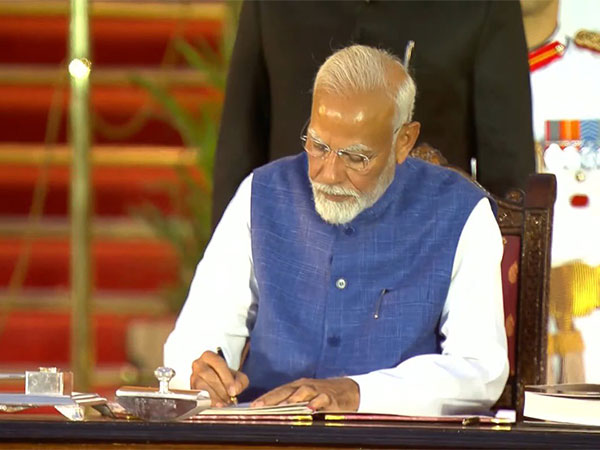
New Delhi [India], June 9 (ANI): Soon after Prime Minister Narendra Modi took oath of office for the third term on Sunday from the Rashtrapati Bhavan premises, Indian industry bodies congratulated him and his alliance partners, as they look forward to working together for the good of the country.
“The third consecutive term for the NDA paves way for continuity in the reform agenda. We look forward to progressive policies and measures that will foster economic and social development and build strong foundation for ‘Viksit Bharat’,” said industry body FICCI’s President Anish Shah.
“As India looks towards becoming the third largest economy, a stable government at the Centre will further strengthen the economic landscape and help us achieve this feat within next few years,” Shah said.
Industry body Assocham said that the Indian corporates are feeling elated about Narendra Modi starting his third term as the Prime Minister.
The industry body expressed confidence that under PM Modi’s leadership, “India would go from strength to strength gaining further stature in the global ranking, powered by an inclusive and sustainable economic growth for the next several years.”
“With your taking oath as the Prime Minister for the third term India Inc is feeling confident that with under leadership the country will be steered to greater heights, maintaining the fastest pace of growth amongst the major economies of the world, ” ASSOCHAM Secretary General Deepak Sood said in his congratulatory message to the Prime Minister.
He said the Indian industry and global investors are feeling reassured of fast and bolder reforms well beyond the economy, touching upon wider governance, quality and ease of living and leveraging upon the aspirational young population.
In his congratulatory message, ASSOCHAM President Sanjay Nayar said, ”The entire ecosystem of industry, trade and financial markets are re-energised with the beginning of new innings. ”
The ASSOCHAM said it would soon be forwarding its suggestions to the new finance minister with regard to Budget proposals and the way forward for giving impetus to manufacturing, boosting productivity, exports and keeping up with public and private investment in infrastructure.
Priti Adani, Chairperson, Adani Foundation, also congratulated Prime Minister Narendra Modi.
“Congratulations to Prime Minister Shri Narendra Modi ji on taking oath for his historic third term. Under your able leadership the country has touched new heights of progress in the last 10 years. And we are confident that in the coming years your ‘Developed India’ campaign will move forward at double the speed,” she wrote in Hindi in an X post.
Sanjeev Krishan, Chairperson, of multinational professional services PwC in India, suggested the new government consider prioritising the allocation of resources and efforts around three actions.
He suggested that the new government must enhance its trust quotient with the youth by gainfully engaging them with a host of skill driven employment and entrepreneurship initiatives; collaborate with industry and academia to build policy and regulatory frameworks to transform technologies and leverage it more meaningfully in the Indian context; and embed sustainability as a core principle in the planning and execution of key governmental initiatives.
Meanwhile, PM-designate Narendra Modi took oath as Prime Minister of India for his third successive term on Sunday at an impressive ceremony at the Rashtrapati Bhavan, which was attended by leaders from India’s neighbourhood and Indian Ocean region.
President Droupadi Murmu administered the oath of office to Narendra Modi, followed by other members of his team of ministers.
Apart from two terms as Prime Minister beginning 2014, Narendra Modi also has the distinction of being the longest-serving Chief Minister of Gujarat, with his term spanning from October 2001 to May 2014.
PM Modi led the BJP-led NDA to a third successive victory in the Lok Sabha polls. The BJP won an absolute majority on its own in the 2014 and 2019 Lok Sabha polls, winning 282 and 303 seats, respectively. PM Modi leads an NDA coalition with 292 seats in the Parliament and has laid thrust on making India a developed nation by 2047.
Born on September 17, 1950, in a small town in Gujarat, his family belonged to the ‘other backward class’ which is among the marginalised sections of society. In his initial years, he worked with the Rashtriya Swayamsevak Sangh and later devoted himself to politics, working with the Bharatiya Janata Party organisation at the national and state levels. (ANI)
